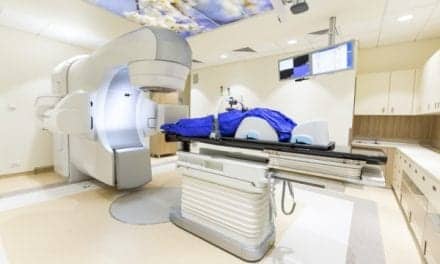MEGIN (formerly Elekta Oy), a Stockholm, Sweden-based provider of magnetoencephalography (MEG) technology, announces that Le Bonheur Children’s Hospital, Memphis, Tenn, is the first hospital in the world to install TRIUX neo, the next generation of magnetoencephalography (MEG) technology for functional brain imaging. A highly sensitive, non-invasive method for mapping the human brain, TRIUX neo is used to assess complex neurological disorders.
“Le Bonheur Children’s has a world-class neuroscience program. They are leaders in implementing innovative technologies that translate to better care and improved outcomes,” says Janne Huhtala, CEO at MEGIN. “We are honored to be working with their amazing team of clinicians and researchers as we look to expand the clinical impact of our technology.” (MEGIN was acquired by U.K.-based York Instruments in July of this year.)
TRIUX neo can detect and localize neural events that are generated in the brain with millimeter accuracy and millisecond resolution. When this information is merged with structural MRI imaging, it provides a view to critical areas of the brain such as those areas responsible for the ability to see, talk, or move. Using this kind of information can confirm a diagnosis when other imaging modalities are inconclusive, thereby increasing the accuracy of surgical intervention and minimizing the risk of neurological deficit.
“We provide excellent care to children with neurologic diagnoses using advanced technology, clinical expertise, and state-of-the-art facilities. As one of the nation’s best pediatric neuroscience programs according to U.S. News & World Report, we are looking forward to incorporating this new technology,” says James Wheless, MD, chief of Pediatric Neurology for the University of Tennessee Health Science Center and co-director of Le Bonheur’s Neuroscience Institute.
“Using MEG, we determine the focus of seizures and can map sensory and motor areas,” says Frederick Boop, MD, chair of the Department of Neurosurgery for the University of Tennessee Health Science Center and co-director of the Neuroscience Institute. “This has allowed us to perform brain surgery in children more safely and with fewer complications. It has also allowed us to extend our surgical capabilities in children with epilepsy to those who might not have been recognized as surgical candidates in the past. This new technology will help us continue this important work.”
Featured video: James Wheless, MD, chair, Division of Pediatric Neurology LeBonheur Children’s Hospital University of Tennessee Health Center, explains the benefits of MEG technology in this YouTube video.






